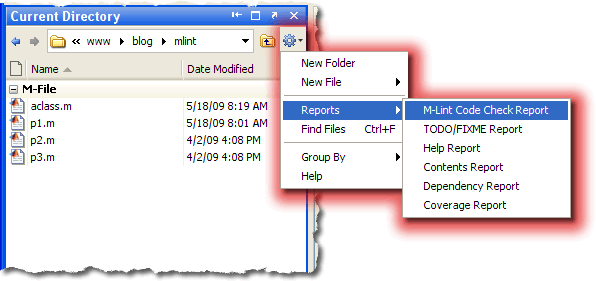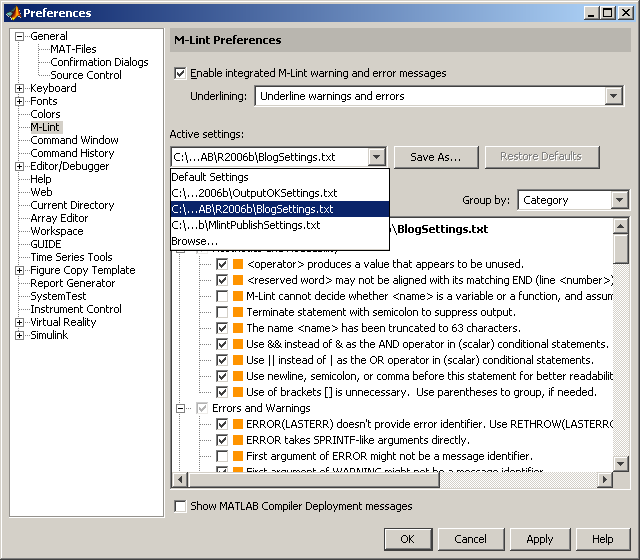M-Lint across a project
Oftentimes I find myself working not just on one MATLAB file, but a whole project-full of multiple files. When I’m in a multi-file mode, I like to know how my code is doing and how much cleanup work I still have to do to get the files into a stable, presentable state. The M-Lint code checker built in to the Editor is a great tool for analyzing and fixing a single file, but not practical when you have a bunch of files.
Why open a series of files consecutively and tab between them just to find the outstanding messages when you can use the M-Lint report to see them all at once?

The report lets you see all the unresolved warnings and errors in all your files at once. This provides a quick way to gauge the health of your project.
There are two ways to get to the M-Lint report. First is through the Current Directory Browser:

The other is through the mlintrpt command. By default The M-Lint report uses your active M-Lint configuration, but you can use this command to specify an alternative configuration. See our previous post about M-Lint configurations for more details.
Let us know how M-Lint has helped or hindered your project-wide workflows.









评论
要发表评论,请点击 此处 登录到您的 MathWorks 帐户或创建一个新帐户。